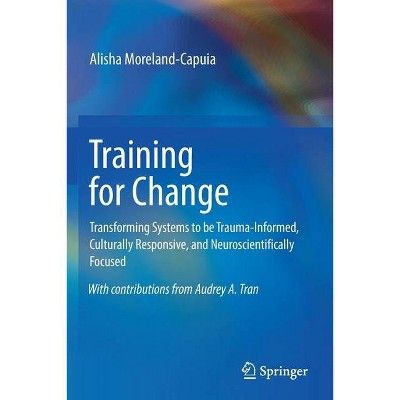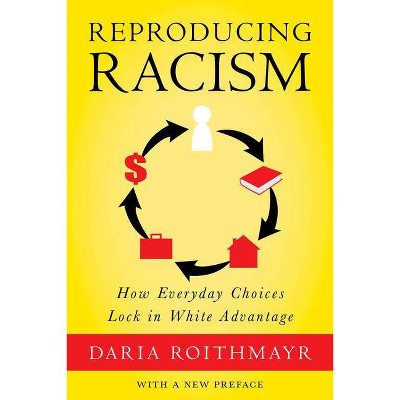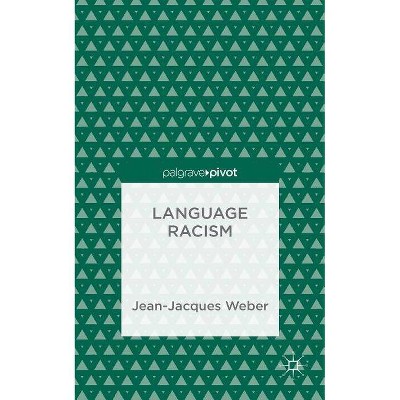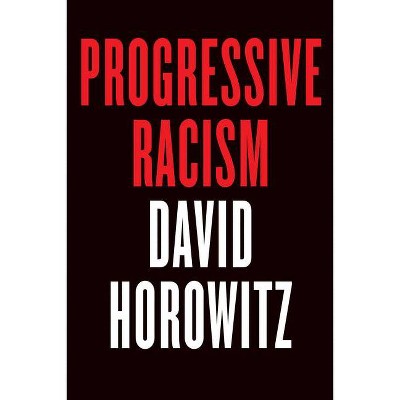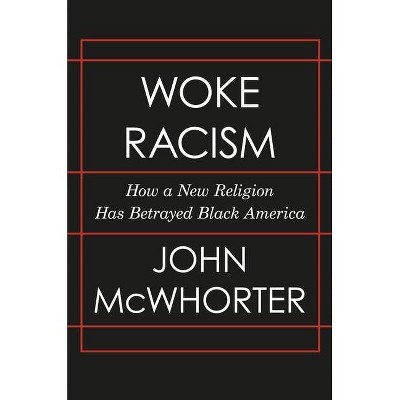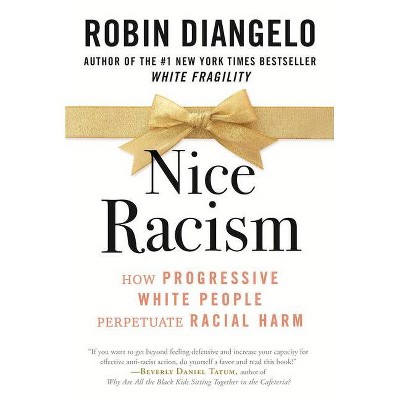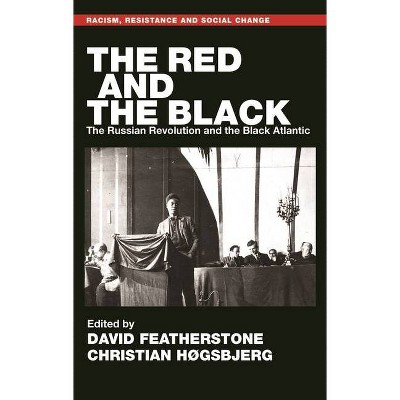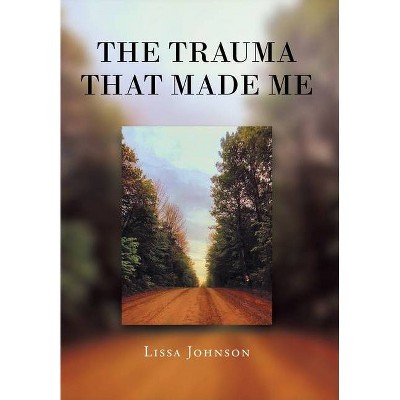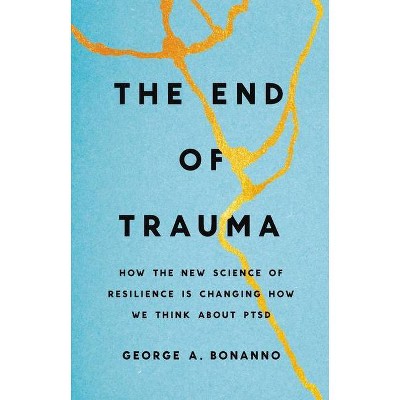The Trauma of Racism - by Alisha Moreland-Capuia (Hardcover)

Similar Products
Products of same category from the store
AllProduct info
<p/><br></br><p><b> Book Synopsis </b></p></br></br><p>This book provides in-depth analysis of the historical, philosophical, anthropological, political and neurobiological reinforcements of fear and the role of fear-on-fear interactions in the construction and maintenance of systems. This text will help systems appreciate the profound, pervasive and deleterious role fear has played in the establishment of laws, policies and practices, and explore what systems can do to reduce fear and prioritize safety and healing. </p>Right now we are dealing with hard truths: human suffering runs deep and is universal; trauma is ubiquitous and widespread; racism is real and has profound psychological, physical, political, social and economic implications; and the world is hurting and needs healing. Many are curious about where and when healing will commence, who will facilitate it and what it will look and feel like. Healing comes in this order: safety, truth and then reconciliation. When we know better, we can (or should) certainly do better. This book offers a framework for how to effectively begin to deconstruct systemic fear, prioritize safety, reduce needless suffering and move toward optimal healing and sustained change. <p></p> <p> </p><p/><br></br><p><b> From the Back Cover </b></p></br></br><p>This book provides in-depth analysis of the historical, philosophical, anthropological, political and neurobiological reinforcements of fear and the role of fear-on-fear interactions in the construction and maintenance of systems. This text will help systems appreciate the profound, pervasive and deleterious role fear has played in the establishment of laws, policies and practices, and explore what systems can do to reduce fear and prioritize safety and healing. </p>Right now we are dealing with hard truths: human suffering runs deep and is universal; trauma is ubiquitous and widespread; racism is real and has profound psychological, physical, political, social and economic implications; and the world is hurting and needs healing. Many are curious about where and when healing will commence, who will facilitate it and what it will look and feel like. Healing comes in this order: safety, truth and then reconciliation. When we know better, we can (or should) certainly do better. This book offers a framework for how to effectively begin to deconstruct systemic fear, prioritize safety, reduce needless suffering and move toward optimal healing and sustained change. <p></p> <p> </p><br><p/><br></br><p><b> About the Author </b></p></br></br>Dr. Alisha Moreland-Capuia (Dr. AMC) graduated from Stanford University in 2002 with a B.S. in biological sciences and a minor in urban studies. She earned her Doctor of Medicine from the George Washington University School of Medicine in 2007. She completed four years of psychiatry residency and an addiction fellowship at Oregon Health and Science University. She is double board certified in addiction and general adult psychiatry.<p>Dr. AMC is an expert in trauma-informed systems change, and specifically has interacted with numerous and varied aspects of the criminal justice system. She has served on the Portland Community Oversight Advisory Board, charged with monitoring the implementation of the City of Portland's settlement agreement with the U.S. Department of Justice to enact reform to Portland Police Bureau (PPB) policies and training. She has partnered with the Federal Judicial Center and the National Judicial College to provide training for Federal Judges and Probation Officers and State Supreme Court Judges respectively.</p> <p>Dr. AMC has trained U.S. Senators and staffers in applying a trauma-informed lens to policies and legislation. She is training various U.S. Probation and Pretrial Service District Offices to facilitate trauma-informed change in U.S. presentencing and sentencing guidelines and post-prison supervision. Dr. AMC has assisted with policy and training with the Multnomah county District Attorney's office over the span of three elected District Attorney's as well as extensively with Portland's local judiciary. She has also trained the Multnomah County Probation Office and other local law enforcement agencies and personnel in Oregon.<br> While in residency training, Dr. AMC built Healing Hurt People-Portland (HHP), a trauma-informed, hospital-based, community-focused youth violence prevention program.<br> Dr. AMC's trauma-informed efforts are global as she works in Angola, Africa at their family clinic Centro Medico Bom Samaritano and is the co-founder of The Capuia Foundation. Additionally, she is partnering with EPIONE in Scotland for global trauma-informed change.<br> She is faculty at McLean Hospital-Harvard Medical School.</p>
Price History
Price Archive shows prices from various stores, lets you see history and find the cheapest. There is no actual sale on the website. For all support, inquiry and suggestion messagescommunication@pricearchive.us
